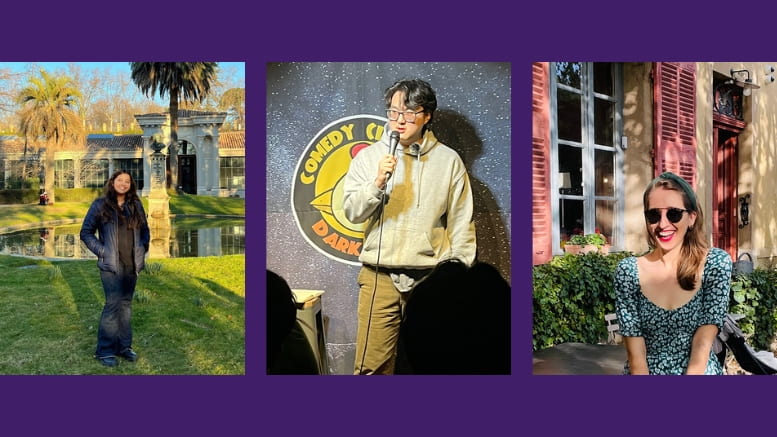Northwestern Named Top Fulbright Producing Institution For 19th Year
March 2, 2023

Northwestern was recently named a Fulbright Top Producing Institution by the U.S. Department of State for the 19th consecutive year. This year, 20 students and alumni received Fulbright awards, which allow them to teach, study and conduct research around the world.
“This achievement is a testament to your institution’s deep commitment to international exchange and to building lasting connections between the people of the United States and the people of other countries,” U.S. Secretary of State Antony Blinken wrote in a letter to Northwestern President Michael H. Schill.
The Fulbright program is the United States’ flagship international educational exchange program, funded by an annual appropriation from Congress. Through the Student Program, about 2,000 recent university graduates, graduate students, artists, or other early career professionals pursue graduate study, conduct research, or teach English abroad each year.
“I’m so proud that Northwestern continues to produce an exceptional number of Fulbright grantees. It’s a wonderful way for us to further our global engagement as an institution while having a positive impact around the world,” said President Schill.
More than 400 Northwestern alumni have participated in the Fulbright program since its inception in 1946.
Northwestern Now caught up with a few new Fulbrighters, including two Weinberg College alumni and a current Ph.D. student below to learn about what they have been studying and the ways in which they are fostering positive cross-cultural exchange.
William Paik, ’20, has been using his Fulbright research scholarship to study and perform stand-up comedy in Seoul, South Korea, for the past five months. Paik previously performed in Chicago and has embraced the challenge of performing in Korea while studying how cultural dynamics shape comedy abroad.
Alina Junejo, ’22, already had a seal of biliteracy from the State of Illinois when she left to teach English in Spain at a school outside Madrid. However, the experience of teaching English in Spanish to both students and teachers has left her with even better fluency, she said, including more familiarity with the vosotros verb form.
Rachel Sarcevic-Tesanovic, a current Ph.D. student, is based in Aix-en-Provence, France, for her research Fulbright. She is studying the history of free women of African descent in the Francophone Atlantic world of the 18th century by reading documents from the French colonial empire preserved at the Archives nationales d’outre-mer.
Awards & Honors

Joel Mokyr wins Nobel Prize in Economic Sciences
October 13, 2025
Nobel recognizes Mokyr’s theory on sustained economic growth Joel Mokyr, the Robert H. Strotz Professor of Arts and Sciences and professor of economics and history in the Weinberg College of Arts and Sciences at Northwestern University, today (Oct….

Weinberg College faculty and graduate students recognized for excellence in teaching
July 2, 2025
Each year, the Weinberg College of Arts and Sciences and the Office of the Provost recognizes members of the College’s tenure-line and teaching-track faculty for excellence in teaching. Weinberg College in addition recognizes the contributions…

Two Named Gates Cambridge Scholars, Will Study History and Machine Learning
May 2, 2025
Jane Clarke ’24 and Rachel C. Zhang ’24 MS have received 2025 Gates Cambridge Scholarships. Now celebrating its 25th year, the program identifies academically outstanding social leaders to pursue postgraduate study and research at the…

Northwestern Student Ethan Barnes Named a Truman Scholar
April 24, 2025
Northwestern student Ethan Barnes has been named a 2025 Truman Scholar in recognition of his academic achievement and commitment to public service leadership. A junior studying political science in the Weinberg College of Arts and…



